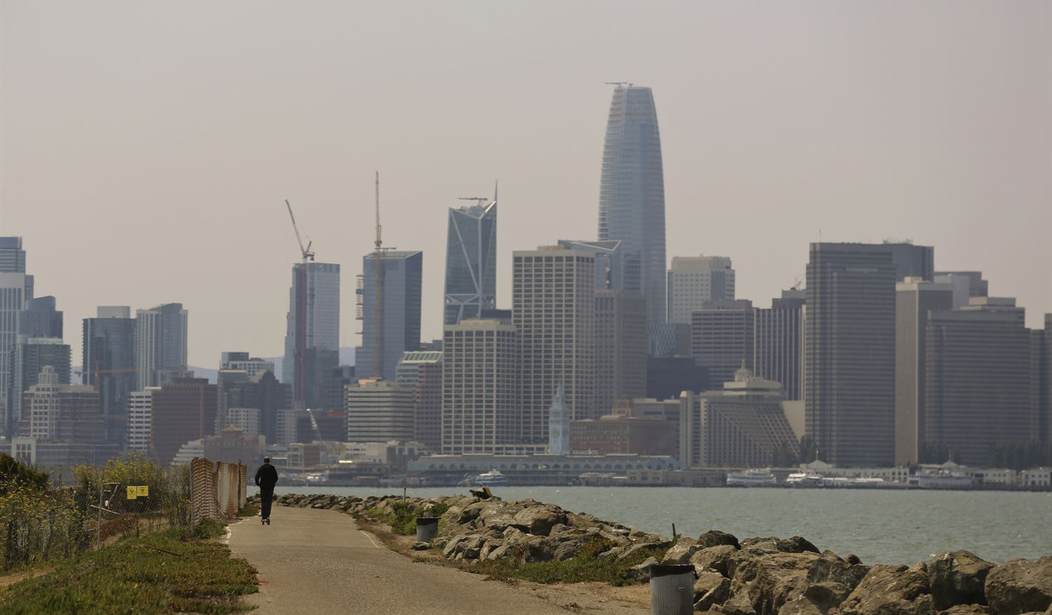S&P Global Ratings announced yesterday that it was changing its outlook on San Francisco's debt from stable to negative.
The outlook on the city-county’s outstanding general obligation and appropriation debt was cut to negative from stable this week by the ratings company. The weakness in the city’s commercial real estate market and tourism activity were factors that drove the move, S&P said. Adding to the city’s burdens, San Francisco’s budget expenditures outpaced revenue growth in fiscal 2023.
To be clear, the ratings agency hasn't downgraded the city's credit rating, which is still at "AAA," the highest possible. A downgrade in the credit rating would increase the city's costs to borrow money, but that hasn't happened yet. The change in outlook is a sign that the agency believes the city is going to struggle in the near term.
San Francisco is projected to face a $245 million budget deficit in the coming fiscal year and a $555 million deficit in the following year. The shortfall could balloon to more than $1 billion by 2027 if expenditures continue to outpace revenue growth.
S&P said in a release that it believes that San Francisco’s “management will be challenged to make the cuts needed to restore it to budgetary balance during the outlook horizon, which could lead to rating pressure if the city’s general fund reserves decline precipitously.”
S&P is not the first ratings agency to make this move. Moody's did the same thing last summer.
The outlook on the city-county’s Aaa credit rating was cut to negative from stable this week by Moody’s Investors Service. The ratings company said prolonged weakness in the city’s commercial real estate market and the “stubbornly slow” rebound of office workers were factors that drove the move.
A big part of the problem is commercial real estate which accounts for the majority of the city's tax revenue.
Real estate property taxes represent nearly 60% of San Francisco’s local tax revenue, according to Barclays, which says that revenues are expected to barely increase over the next five fiscal years.
A 2022 report from the city’s chief economist found that, in a worst case scenario, San Francisco could lose $200 million in property tax revenue by 2028 because of remote workers.
This year more than a third of the city's officer buildings are vacant, which means owners are dumping projects that no longer make sense and buildings are selling at far lower values than they were pre-pandemic. Case in point, a 16-story office tower just sold for 10% of its pre-pandemic price.
Deeply discounted office towers have become the norm in San Francisco over the past year, but no recent deal has been as radical as one that closed in the city’s struggling Mid-Market neighborhood this month: An empty 16-story tower traded for just $6.5 million.
The $72 per square foot pricing for the tower at 995 Market St., which anchors the corner at 6th and Market streets, represents a 90% drop in value from when the building last sold in 2016, for roughly $62 million.
With office vacancy in San Francisco estimated at 36.6% four years after the pandemic, there is no shortage of deals to be had in the city. One office broker told the Chronicle last year that almost every office property in the city is “on sale.”
Of course far lower prices will eventually mean far lower rents and that will draw people in to these spaces. But property taxes are based on an assessed value and if sales demonstrate the value of downtown SF is now half of what it was five years ago, that's going to mean a lot less revenue coming in to the city. Meanwhile, wages and costs are up thanks to inflation. It's hard to see where the city is going to be able to cut a billion dollars over the next three years without impacting critical services such as transportation, public safety, sanitation, etc. Significant cuts to any of these could in turn make downtown less appealing and pretty soon you're right back to talking about the doom loop.
I'm on record saying I think San Francisco has too much going for it to ever be down and out permanently. It will recover, eventually. The question is how long that will take and how much pain will be experienced along the way. Right now the immediate future is not looking very bright.








Join the conversation as a VIP Member